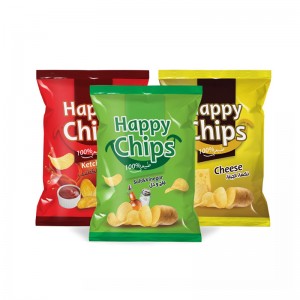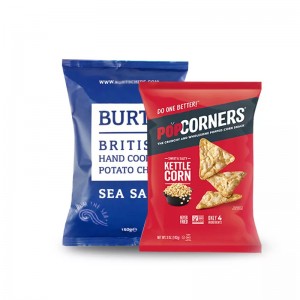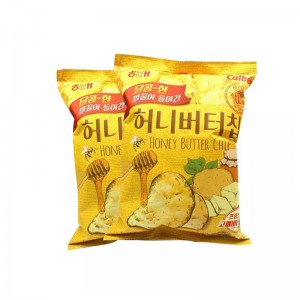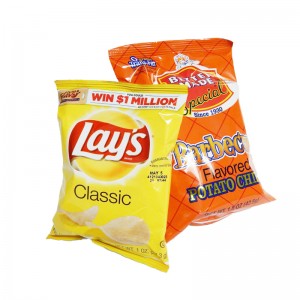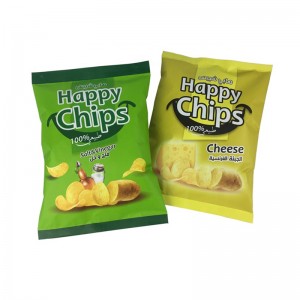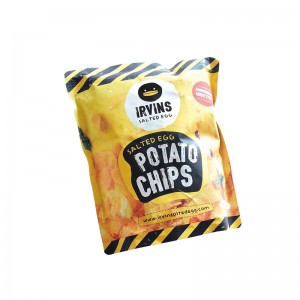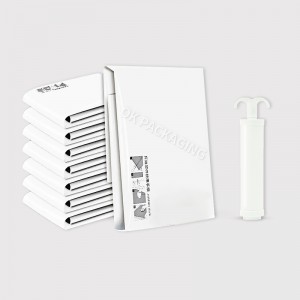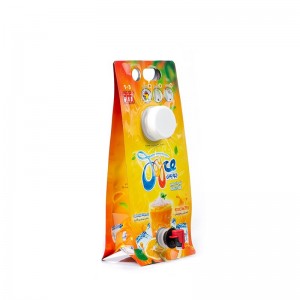Customized Potato Chips Snack Packaging Bag Automatic Packaging Machine Roll Film Plastic Laminate Film

Customized Potato Chips Snack Packaging Bag Automatic Packaging Machine Roll Film Plastic Laminate Film Description
Potato chips are generally packaged in aluminized composite film, and the rub resistance of such packaging has an important impact on the shelf life of the product.
The glossy silver metallic coating often used to maintain the freshness of packaged foods is often seen inside potato chip packages. Potato chips contain a lot of oil. When encountering high concentrations of oxygen, the oil is easily oxidized, causing the potato chips to have a savory taste. In order to reduce the penetration of oxygen into the potato chip packaging in the environment, food companies generally choose aluminum plating with high barrier properties. Composite film for packaging. Aluminized composite film refers to vapor deposition of aluminum on one of the single-layer films. The presence of metal aluminum increases the overall barrier performance of the material, but also leads to poor rubbing resistance of the material. When subjected to external force rubbing, the vapor-deposited aluminum layer It is easy to be brittle and cracked, and creases and pinholes appear, which will cause the overall barrier property and physical and mechanical properties of the package to decline, which cannot reach the expected value. Therefore, it is possible to effectively control the rubbing resistance of the packaging and prevent the above quality problems of potato chips caused by the poor rubbing resistance of the packaging materials, which is an important condition for testing product quality.
To solve this problem, the researchers developed an alternative to metal-coated films that can be fully and easily recycled.
The new film is produced in an inexpensive way, consisting of layered double hydroxides, an inorganic material, in an inexpensive and green process that requires water and amino acids. First of all, the nanocoating is first prepared with non-toxic synthetic clay, and this nanocoating is stabilized by amino acids, and the final film is transparent, and more importantly, it can be like a metal coating. Isolated from oxygen and water vapor. Because the films are synthetic, their composition is fully controllable, which greatly improves their safety in contact with food.
Aluminized composite films are generally used to package solid beverages, health care products, meal replacement powder, milk powder, coffee powder, probiotic powder, water-based drinks, snacks, etc. through automatic packaging machines.
Customized Potato Chips Snack Packaging Bag Automatic Packaging Machine Roll Film Plastic Laminate Film Features

Aluminized film efficiently blocks air moisture

Heat sealing for efficient sealing
Customized Potato Chips Snack Packaging Bag Automatic Packaging Machine Roll Film Plastic Laminate Film Our Certificates
All products undergo a mandatory inspection test with iyr state-of-the-art QA lab And get a patent certificate.







